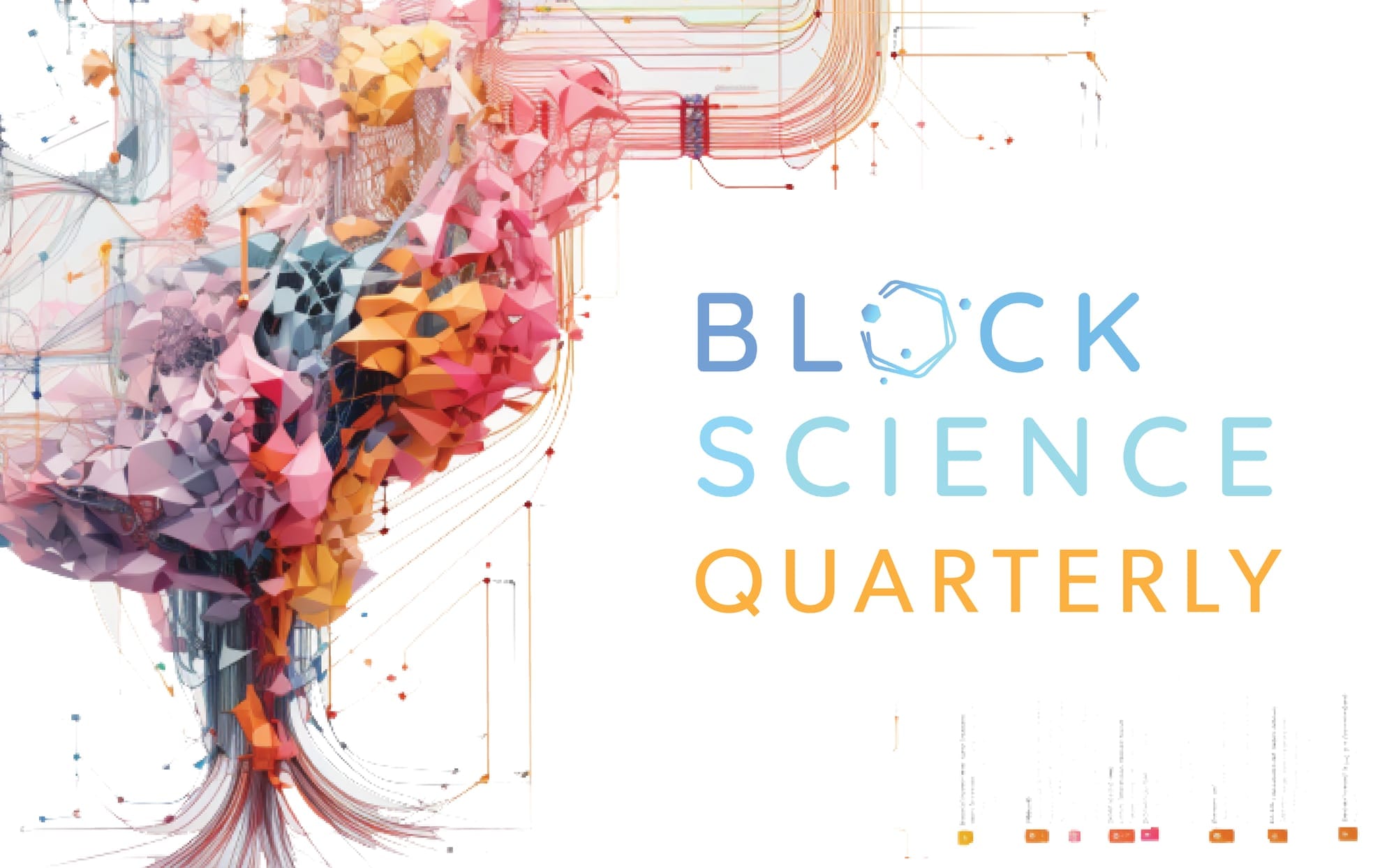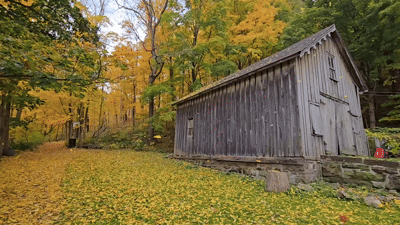
Welcome to our Q3 2025 newsletter! The time is flying as fast as the leaves are falling. We’re wishing you a beautiful start to the cozy season! ☕️🍎🥧
This quarter we tested new feedback loops between people, tools, and institutions. From AI theory of the firm to attention-aware governance, in this issue, we share a Telescope + KOI demo, fresh thinking on governance surfaces, and presentations and conversations from our team’s travels to Zurich, Paris, Berlin, Albany, and São Paulo.
These connections deepen our commitment to shared infrastructure that respects complexity, centers human agency, and builds long-term resilience.
In our quarterly updates, you’ll find:
- Updates from our research network
- Featured publications and talks
- Glimpses into the frameworks that shape our practice
We’re now on Bluesky! 🦋 Follow us there for bite-sized updates, photos, and works in progress.
Solving Coordination Challenges with Multidisciplinary Design Optimization (MDO)
When projects span many disciplines, structure beats guesswork. This piece explores how MDO (Multidisciplinary Design Optimization) helps teams map interdependencies, clarify shared variables, and select architectures that fit their context—centralized for speed or distributed for autonomy.
Developed from the research of Peter Hacker with contributions from Michael Zargham, Jamsheed Shorish and others, it also reflects on the role of AI as a tool for synthesis and sensemaking in collaborative system design.
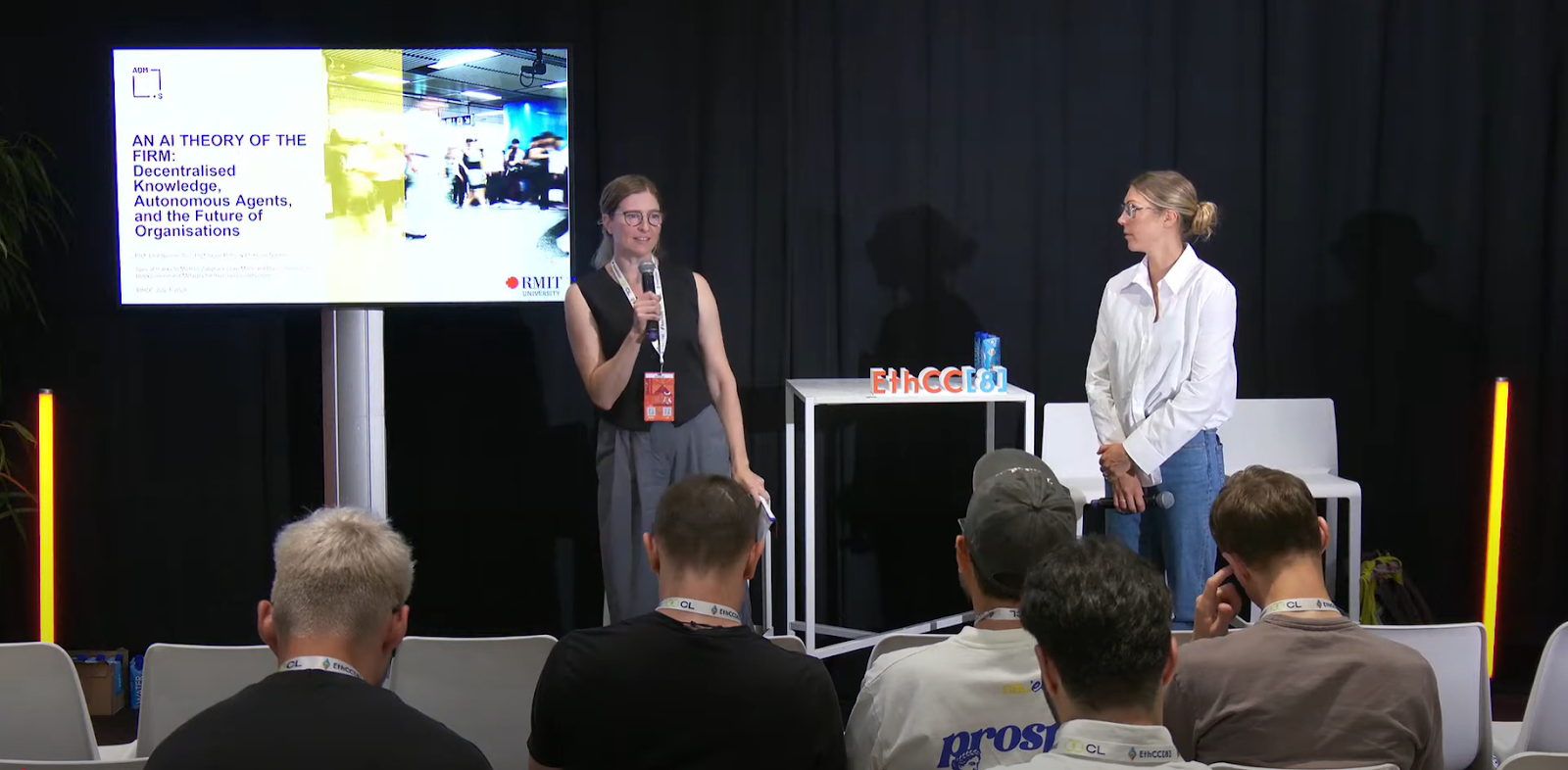
An AI Theory of the Firm
In this video, RMIT Researchers Kelsie Nabben (also a BlockScience senior social scientist specializing in digital ethnography) and Ellie Rennie introduce an AI Theory of the Firm that treats organizations as knowledge-bearing systems. Using Knowledge Organization Infrastructure (KOI) and reference identifiers, they show how groups surface context, govern data, and coordinate across ecosystems, enabling communities like Ethereum to act with shared situational awareness.
Telescope + KOI: Building Feedback Loops for Organisational Intelligence
How do you turn everyday chat into governed, reusable knowledge? This guest blog by Ellie Rennie outlines the latest findings and includes a short demo of a research collaboration by BlockScience and Metagov. She discusses how Telescope, a consent-based ethnography bot designed to capture and organize community discussions, pairs with the KOI protocol to label and route insights using reference identifiers, so labels travel while data stays under local control. Communities set policies, track provenance, and feed curated context to LLMs within clear boundaries, creating live feedback loops between observation and action.
Online Governance Surfaces and Attention Economies
How can online institutions reduce, not just reshuffle, attention costs? This new paper proposes five heuristics for designing “governance surfaces”: modes, processes, information, incentives, and feedback. Drawing on cases from emerging tech and commons theory, it shows how “attention-saving” tools often add complexity, and offers guidance for legible, calm-by-design participation that scales sustainably.
Michael Zargham named Fellow at the European Decentralisation Institute (EDI)
Our founder and chief engineer will contribute systems thinking and engineering rigor to EDI’s work on decentralized digital public infrastructure—advancing transparent, adaptive, and accountable governance. His appointment reflects a strong alignment between EDI’s mission and BlockScience research. Zargham also serves as research director at Metagov and on the NumFOCUS Advisory Council.
🛣️ BlockScience on the road…
Summer Events in Europe
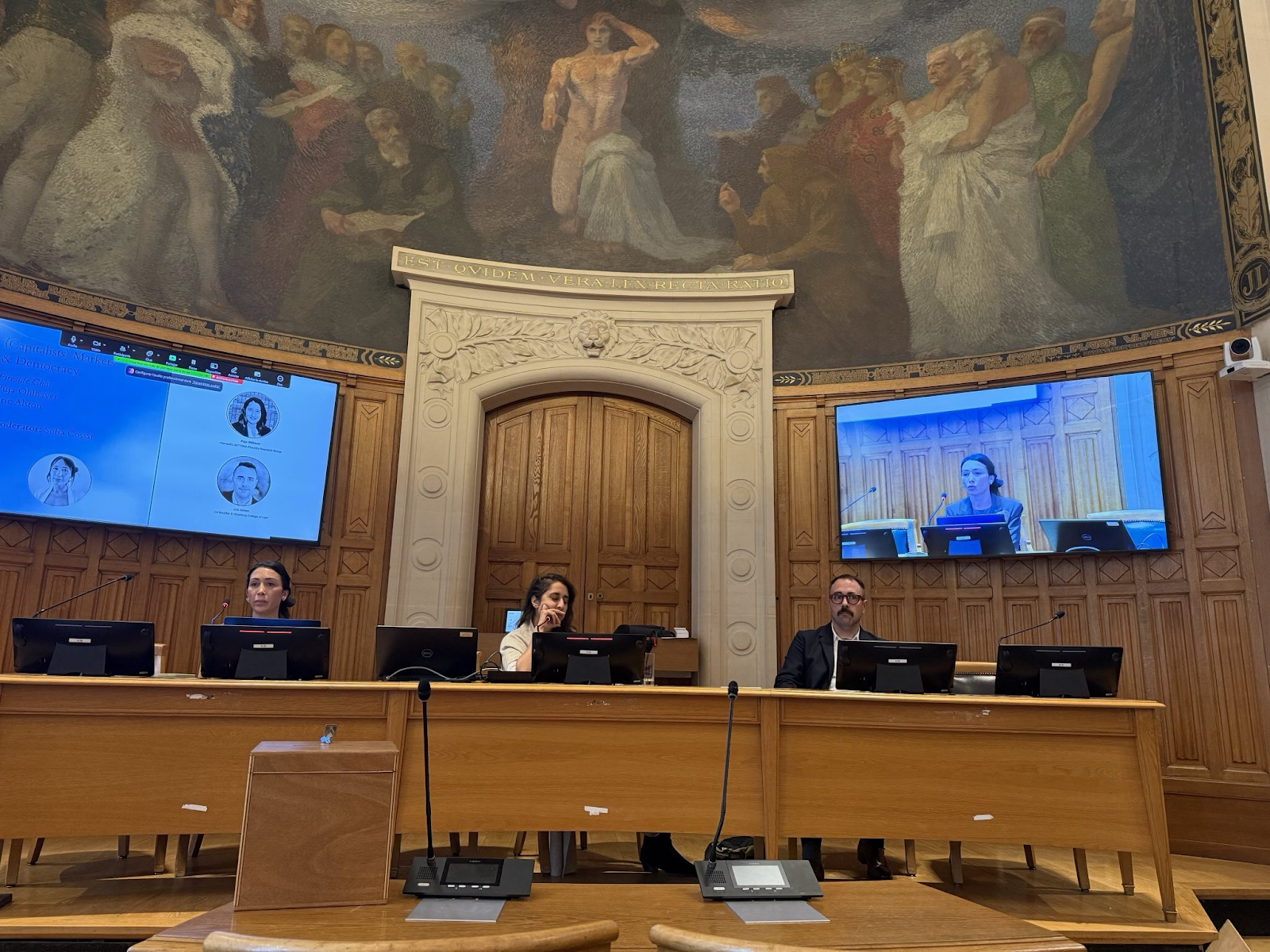
Blockchain Governance International Symposium in Paris, France
Michael Zargham joined the “Blockchain Governance Design” panel, and Eric Alston took part in a fireside chat on “Markets and Democracy” hosted by BlockchainGov. Both shared BlockScience perspectives on institutional complexity, legitimacy, and practical governance design.
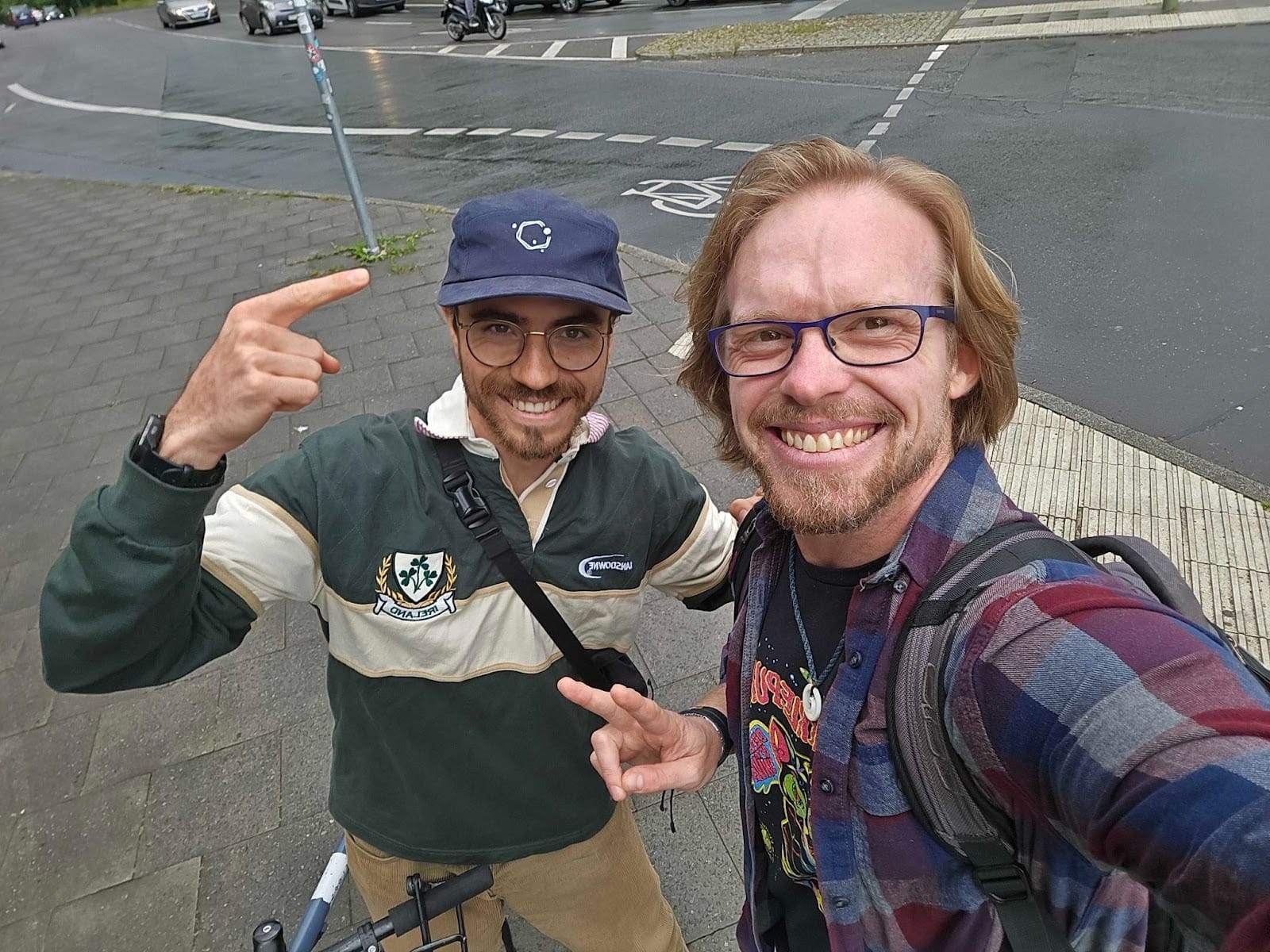
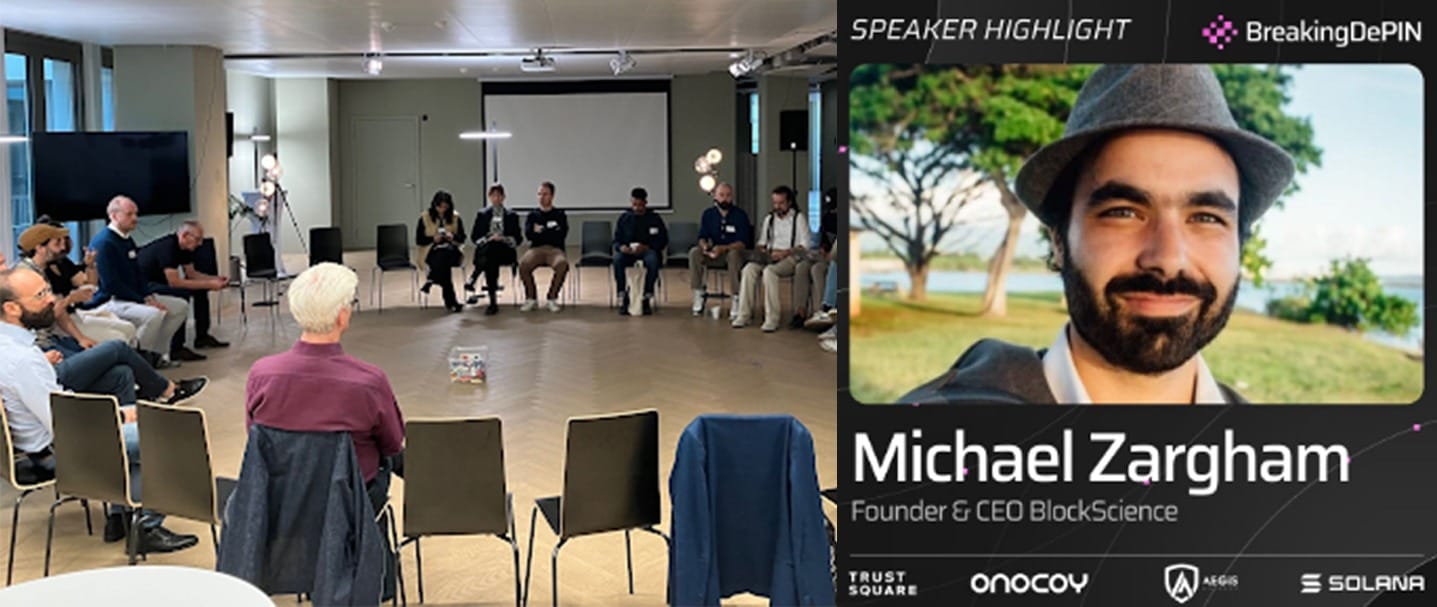
Breaking DePIN: The Physical AI unConference in Zurich, Switzerland
Michael Zargham was a featured speaker at Breaking DePIN, hosted at Trust Square. He shared economic engineering perspectives for durable, incentive-aligned DePIN systems alongside researchers and industry leaders. DePIN (Decentralized Physical Infrastructure Networks) is a community-owned, crypto-incentivized network for real-world shared infrastructure including things like connectivity, compute, storage, and sensors. Individuals contribute hardware and data and earn tokens; a blockchain coordinates contributions, payments, and sometimes governance.
BlockScience Retreat in Albany, NY
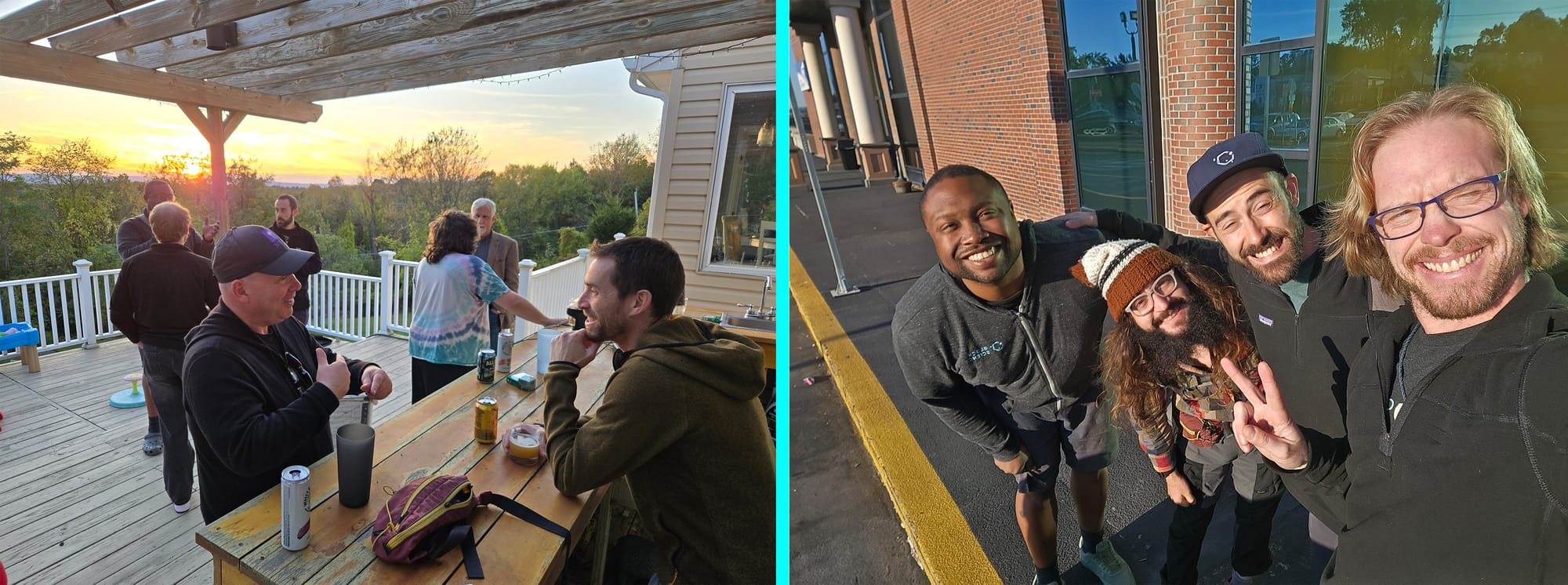
Last week, the team gathered in Albany, New York for an immersive multi-day retreat focused on research collaboration, cross-team alignment, and community building.
Sessions included a keynote from Zargham on Engineering Adaptive Systems, an advisor fireside chat, workshops, and live demos of exciting tech research on the forefront of innovation.
Between discussions on governance, system architecture, and tool design, the group enjoyed shared meals, informal working sessions, and a few laughs over jigsaw puzzles and late-night conversations.
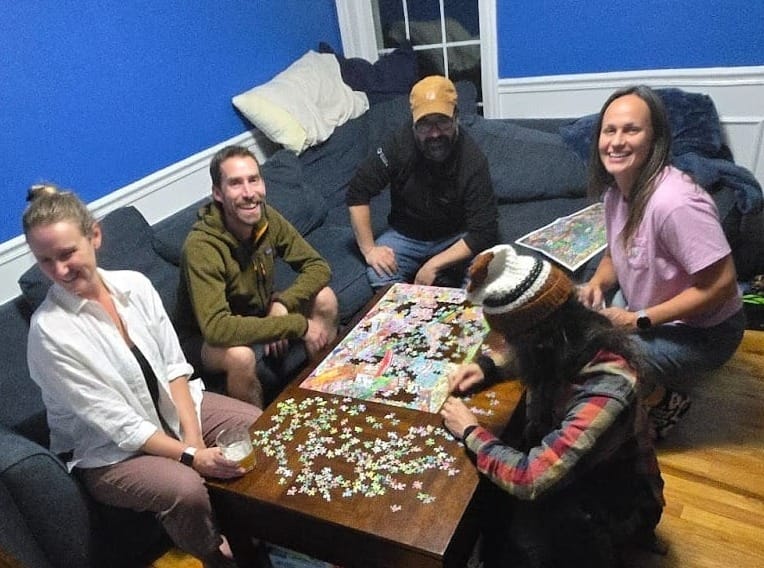
And of course, BSci’s resident atmospheric physicist and computational scientist, Danilo, took to the retreat grounds to map and analyze the watershed with fellow and research engineer Shawn Anderson, even creating a zine to outline the research.
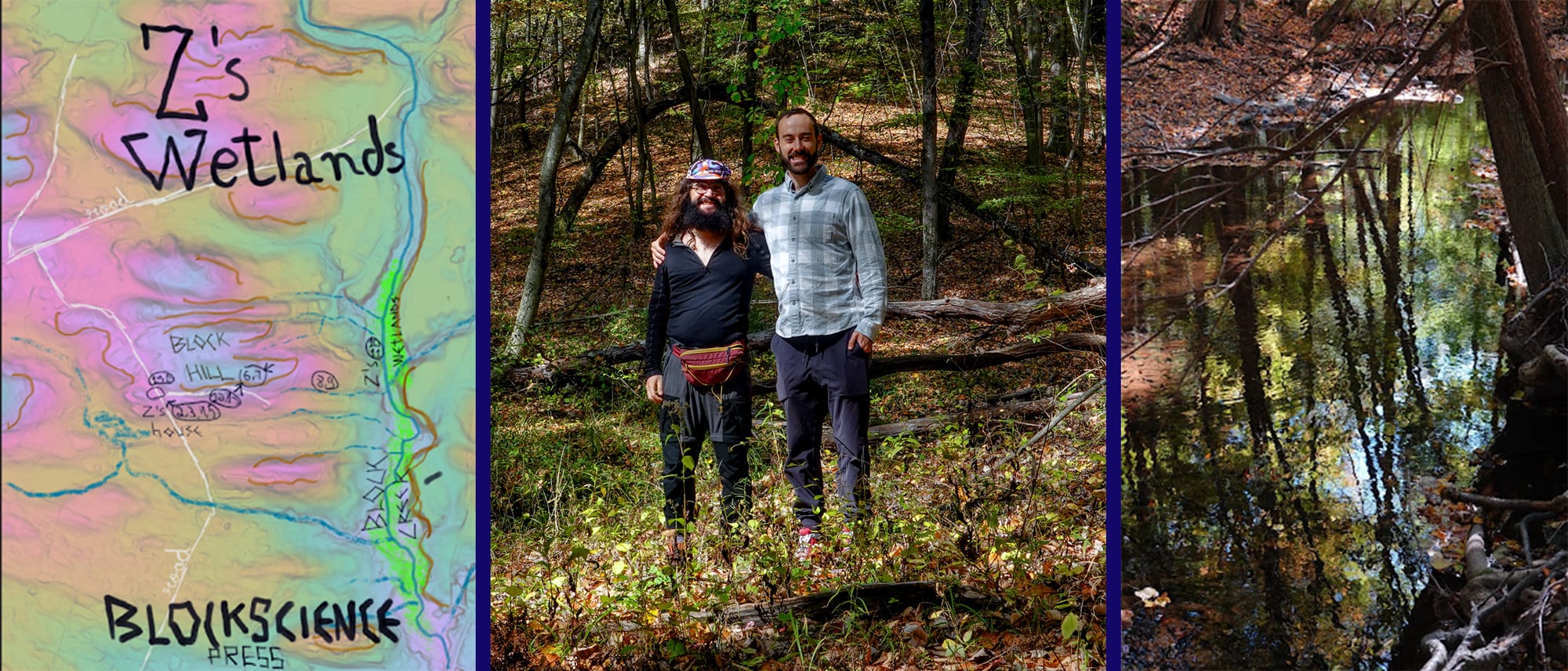
The retreat reinforced what makes BlockScience unique - rigorous interdisciplinary collaboration grounded in human connection.
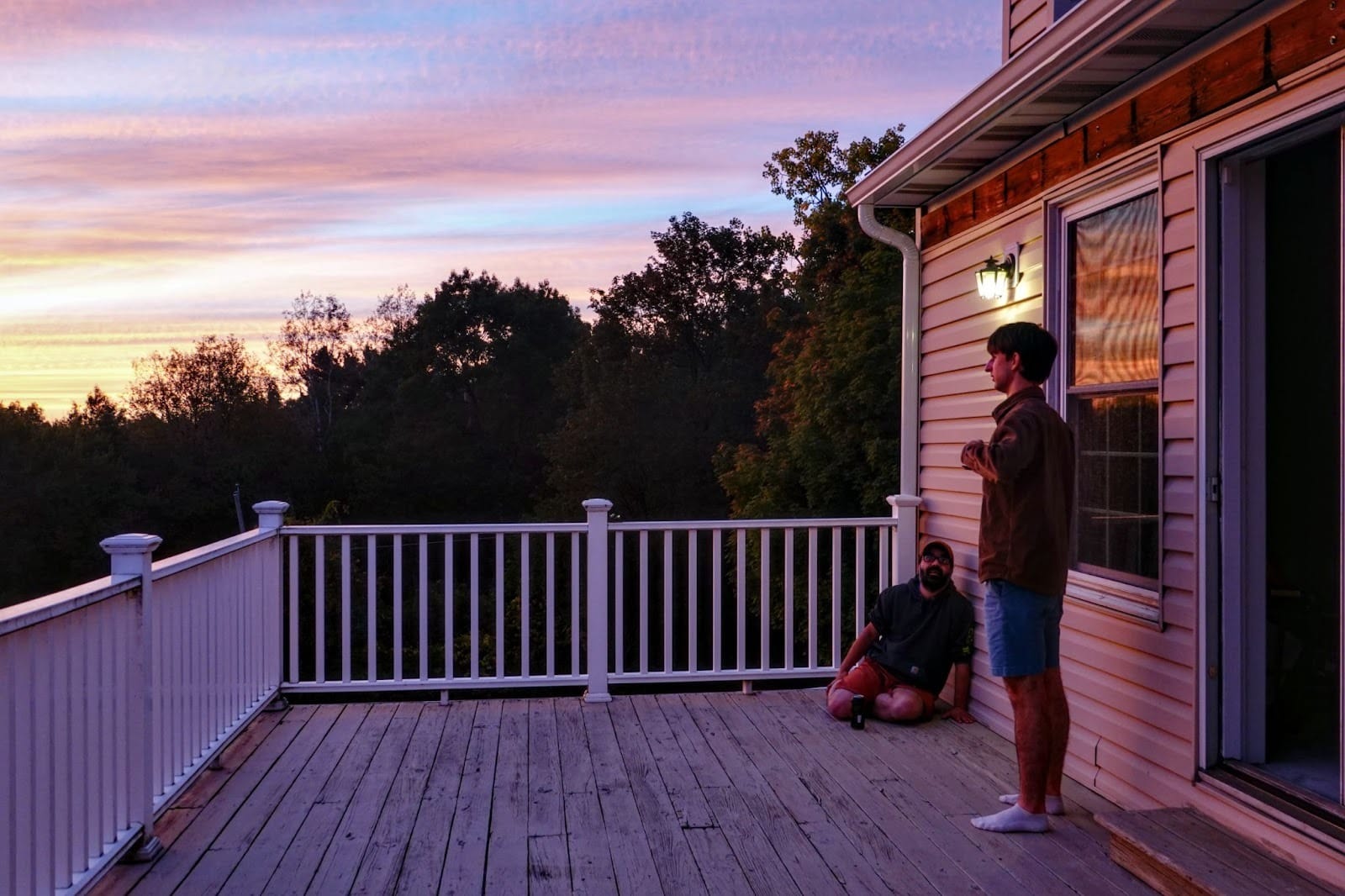
Mapping Water Systems & Citizen Science in São Paulo, Brazil
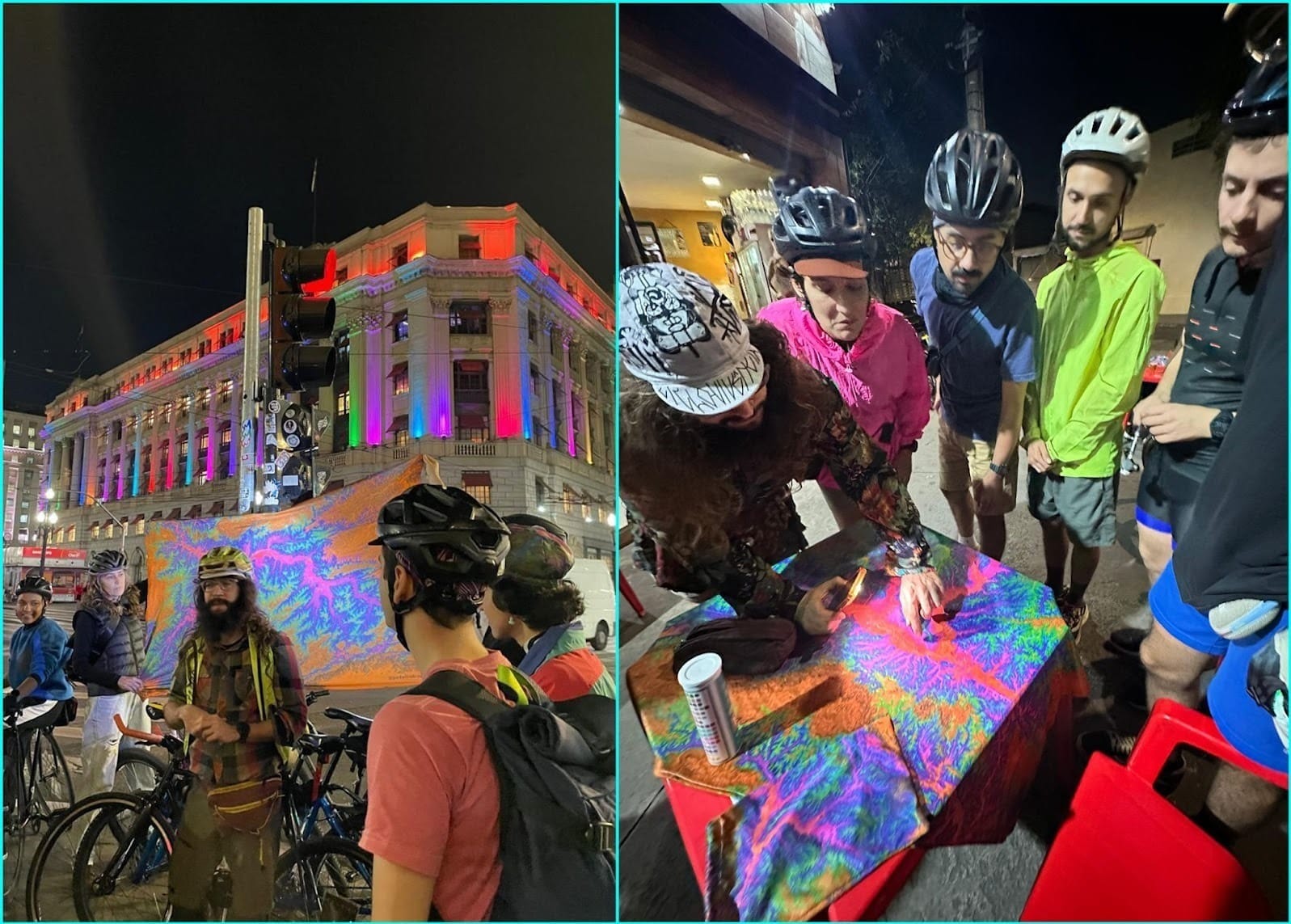
Pedal Hidrográfico: Mapping São Paulo’s Waters by Bike
Danilo Lessa Bernardineli, senior research engineer, had another watershed mapping project - this time a much larger area in his home community. Bernardineli helped to steward Pedal Hidrográfico, a community ride tracing São Paulo, Brazil’s hidden waterways and watershed lines. The project blends cycling, maps, and field notes to make urban water systems legible, connecting citizen science with systems thinking and place-based learning. Danilo is working to gather materials in English; until then, he and his team have created resources in Portuguese.
🎧 Podcast We’re Listening To ▶️
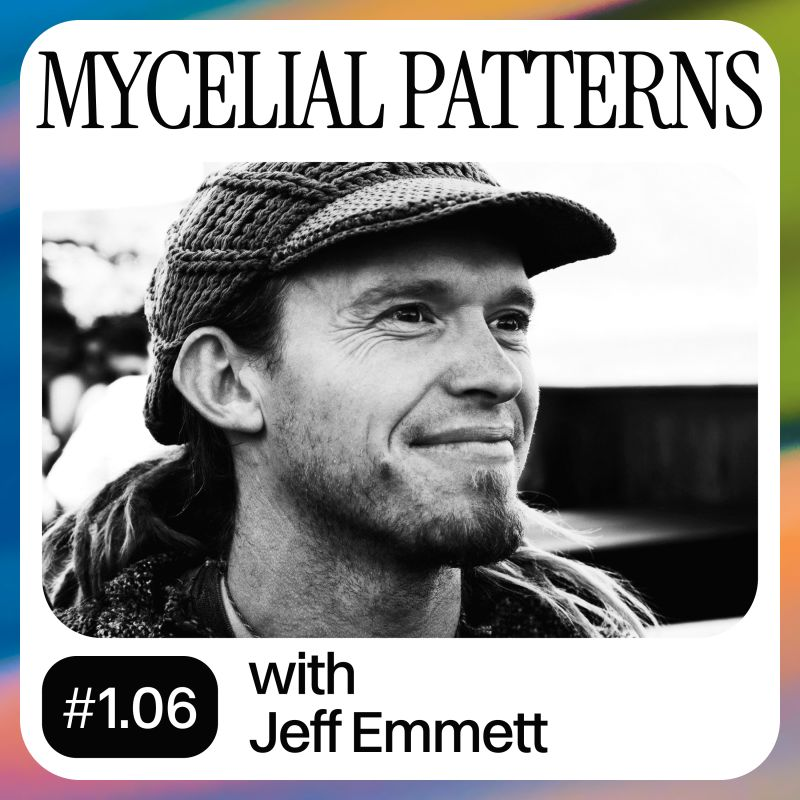
Fungi to Finance: Mycelial Patterns in Governance
Jeff Emmett, BSci fellow, researcher, and co-author of MycoFi: Mycelial Design Patterns for Web3 and Beyond, appears on the Entangled Futures podcast to explore how fungi inspire governance and economic design. The conversation covers mycelial principles, fractal economies, conviction voting, bonding curves, and regenerative finance.
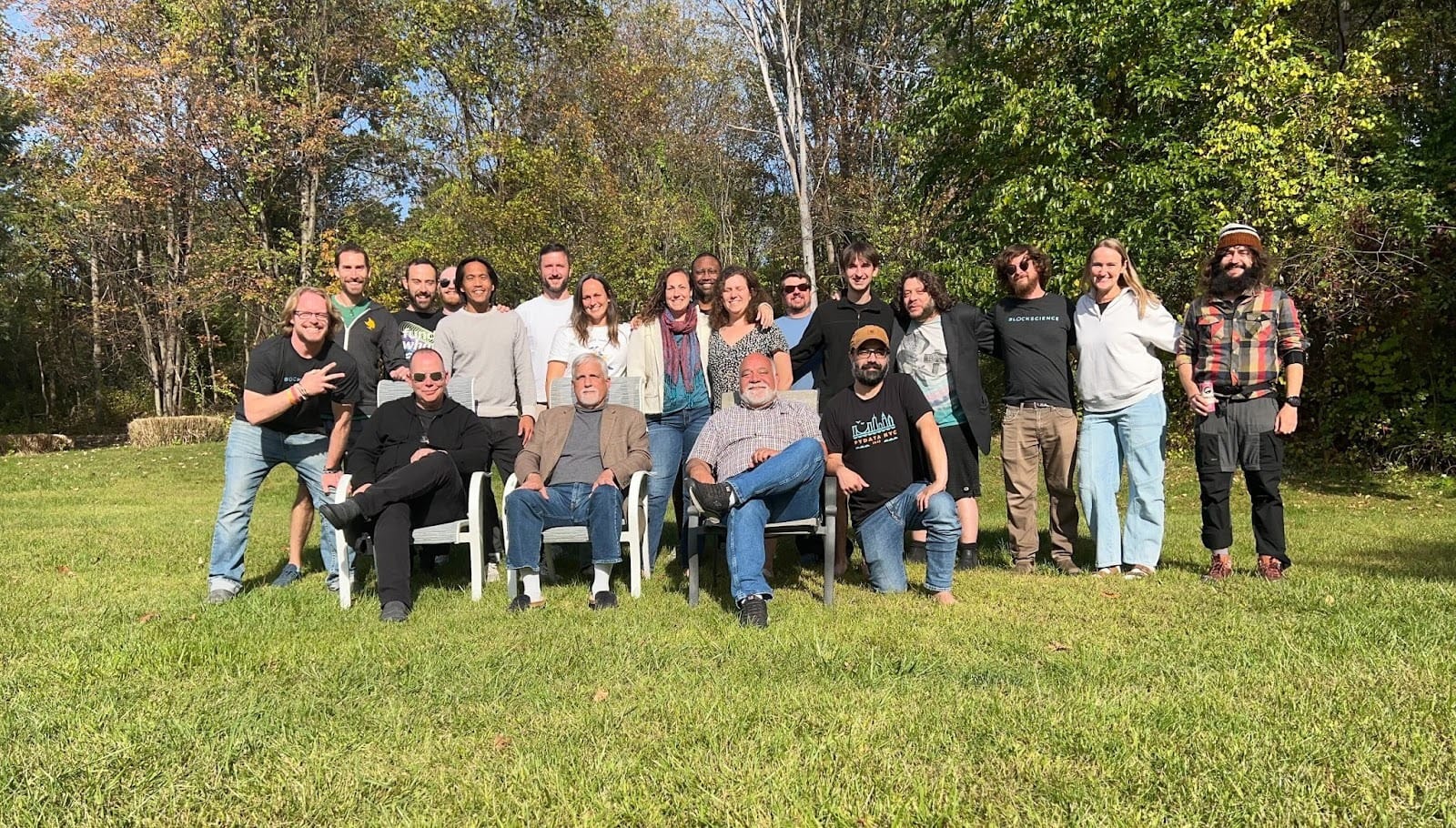
🙏 Thank you for walking with us on our mission. The work of building meaningful systems never happens alone. Each collaboration, conversation, and insight adds to the shared mosaic of understanding that guides us forward.
We’re thankful for your curiosity and participation in this evolving dialogue. To continue the conversation, write to us at info@block.science.
Wishing you a season of balance, inspiration, and cozy curiosity. 🍁🍂
🎃 What’s the ratio of a pumpkin’s circumference to its diameter?

Pumpkin Pi! 🎃

